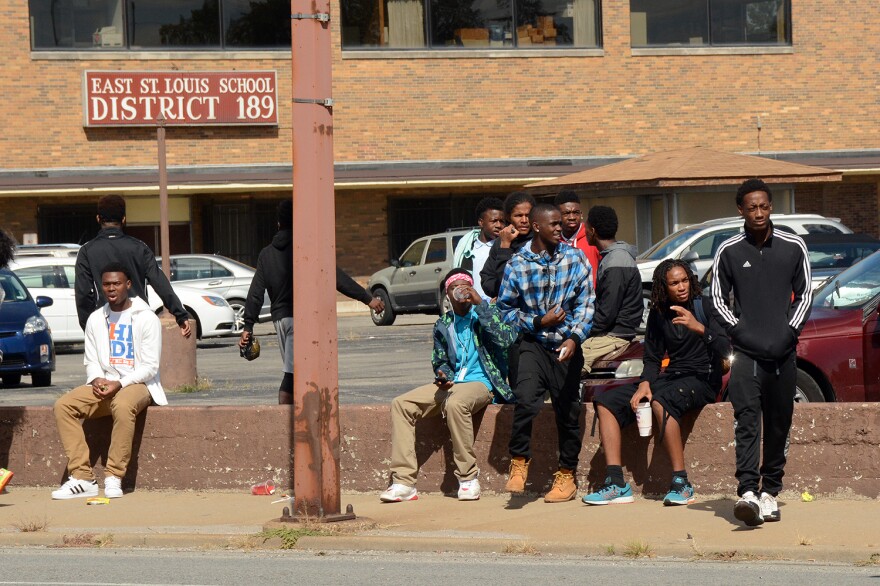The East St. Louis School District is one of 10 Illinois schools that will help design a learning plan based not on how much time students spend listening to their teacher, but rather how many skills they’ve mastered.
It’s a new approach to education called competency-based learning, meant to transition away from credit hours that traditionally have tracked a student’s progress.
Classroom instruction will be “a lot more guided,” less teacher-centered and focused on concrete skills, Devon Horton, deputy superintendent said Monday. “So more practical, more hands on.”
Imagine students out of their seats, measuring the size of their classroom to learn area, Horton explained, not staring at a square on a worksheet.
The Illinois State Board of Education announced the pilot program Monday, groundwork for which was laid out in the Postsecondary and Workforce Readiness Act in 2016. The board said in a news release that a competency-based curriculum will close the gap between the overall graduation rate and how many of those students are ready to go onto some sort of post-secondary education or employment.
Right now, just more than half of Illinois high school graduates meet that mark, according to the state board of education.
“The only thing our feet are being held to the fire (on) is we still have to give the state assessment,” Horton said. “Outside of that, what we do prior to the state assessment and even after that is entirely up to us. They’re giving us full autonomy.”
East St. Louis schools will start applying the new curriculum to a group of students at each of its traditional, vocational and alternative high school programs beginning in the fall of 2018.
Details will be worked out in the next year, but Horton said it will be about giving students more practical skills than they traditionally learn now.
“In the end,” Horton said, “we want to make sure our students are actually being able to excel beyond high school in whatever venture they decide to go into.”
Follow Ryan on Twitter: @rpatrickdelaney.



